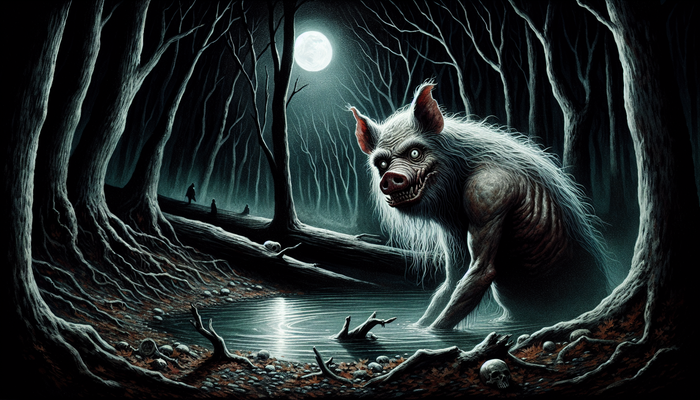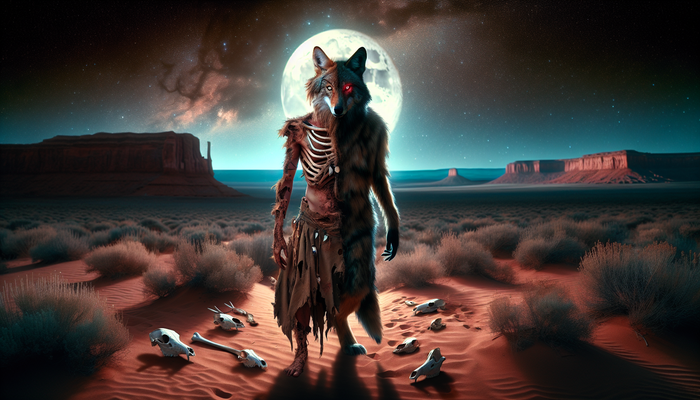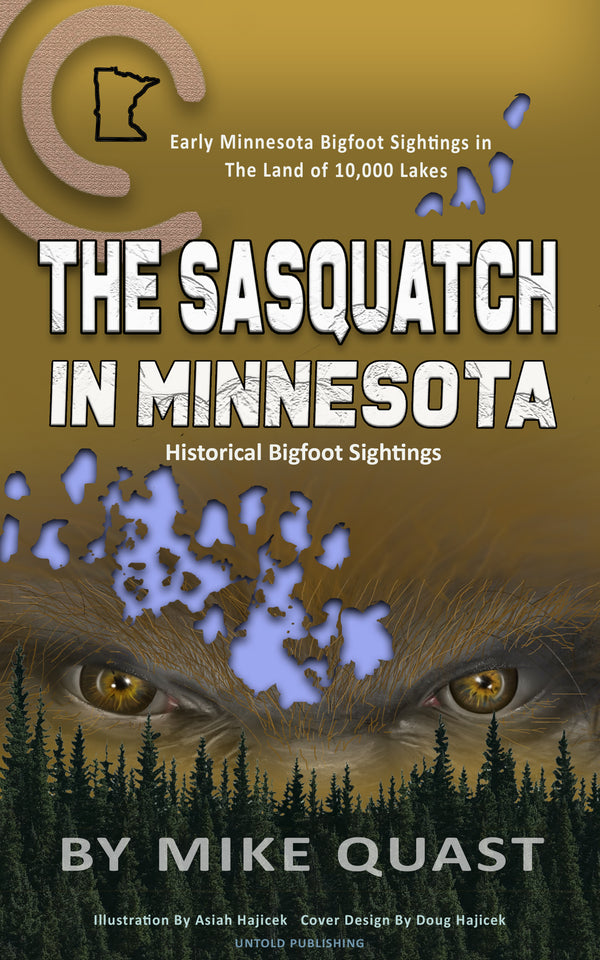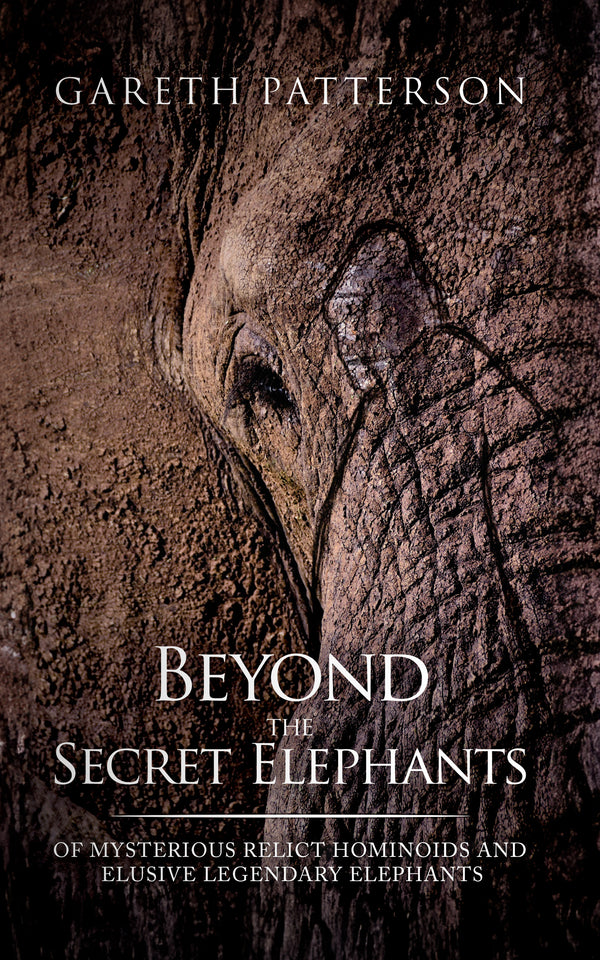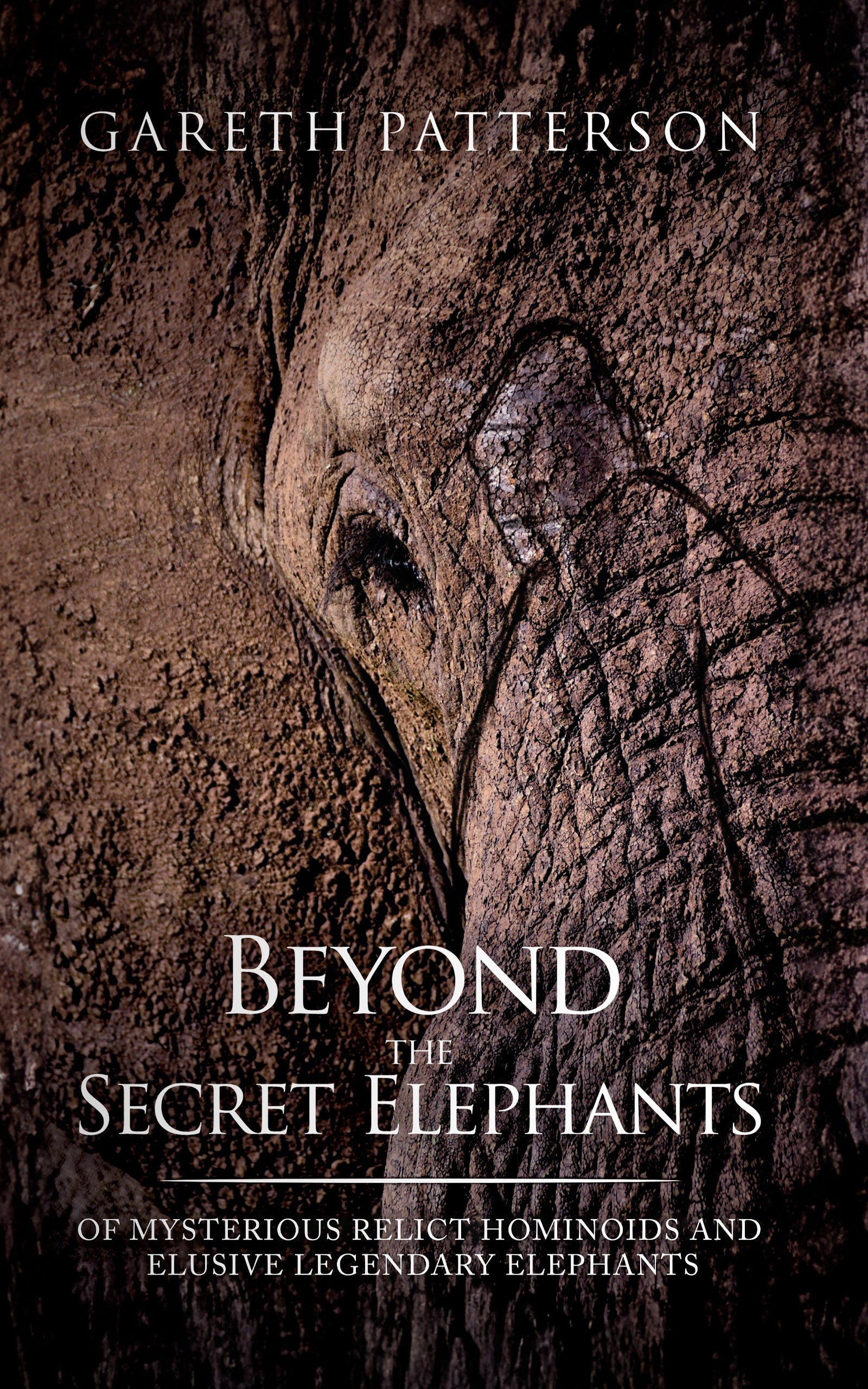Bigfoot Sightings Across Alabama's Diverse Landscapes

By Ava Martinez, Cryptozoologist
In the tapestry of American folklore, few legends have captured the imagination quite like that of Bigfoot. This elusive, enigmatic creature has been the subject of countless tales, debates, and investigations, with sightings reported across the nation. However, one state, in particular, has emerged as a surprising hotspot for Bigfoot activity: Alabama, the Heart of Dixie.
Nestled in the Deep South, Alabama boasts a rich diversity of landscapes and ecosystems, from the rugged peaks of the Appalachian Mountains to the lush swamps of the Gulf Coast. It is within these varied habitats that numerous eyewitnesses have reported encounters with a creature that defies conventional explanation - a towering, bipedal being covered in hair, with an uncanny resemblance to a human, yet possessing an air of mystery and wildness that has captivated the minds of believers and skeptics alike.
As a cryptozoologist and biology teacher, I have long been fascinated by the enduring legend of Bigfoot and the compelling evidence that has emerged from Alabama's backwoods and hidden hollows. In this article, I will embark on a journey across the state, examining the most intriguing and well-documented Bigfoot sightings from each region. By delving into the details of these encounters and analyzing the patterns that emerge, I hope to shed light on the possible existence and behavior of this legendary creature, and perhaps even uncover clues that could lead us closer to solving one of the greatest mysteries of our time.
The Legend of Little Foot in Little River Canyon
Our journey begins in the rugged terrain of Little River Canyon, a natural wonder carved into the sandstone and limestone of northeastern Alabama. This 12-mile-long canyon, often called the "Grand Canyon of the East," is home to a unique ecosystem and a wealth of biodiversity. However, it is also the setting for one of the most intriguing Bigfoot-related legends in the state: the tale of "Little Foot."
The story of Little Foot dates back to the late 1960s, when a small family of monkeys escaped from a defunct petting zoo in the area. These resourceful primates, perhaps rhesus macaques or capuchin monkeys, made their way into the canyon and seemingly vanished, never to be seen again. Or so it was thought.
In the years that followed, a strange pattern of sightings began to emerge. Hikers, kayakers, and canyon visitors reported encountering a small, upright, hairy creature that walked on two legs and seemed to possess an uncanny intelligence. In 1972, a group of hikers even managed to capture a blurry photograph of the creature, which quickly became a subject of intense speculation and debate.
One of the most compelling pieces of evidence came in 2007, when a retired engineer from Huntsville, Alabama, captured shaky video footage of a small, hairy being in the canyon. The creature, estimated to be around 3 to 4 feet tall, can be seen walking upright and even dragging an Igloo cooler behind it, a behavior that suggests a level of problem-solving skills and manual dexterity that is rare among non-human primates.
So, what exactly is Little Foot? Theories abound, ranging from the plausible to the fantastical:
- Some believe that the creature is indeed a descendant of the escaped monkeys, having adapted to the canyon's unique environment over generations.
- Others speculate that Little Foot could be a previously unknown species of primate, perhaps a remnant population of a thought-to-be-extinct lineage.
- There are even those who suggest that Little Foot might be a juvenile Bigfoot, a smaller version of the legendary creature that has been spotted in the canyon's more remote and inaccessible areas. This theory, while intriguing, is perhaps the most difficult to substantiate, as it would imply the existence of a breeding population of Bigfoot in the region, a claim that has yet to be supported by concrete evidence.
Regardless of its true nature, the legend of Little Foot has become an integral part of Little River Canyon's lore, drawing curious visitors and cryptozoology enthusiasts from around the world. As we continue our exploration of Alabama's Bigfoot sightings, it is important to keep in mind that even the most seemingly far-fetched tales can sometimes contain kernels of truth, and that the mysteries of the natural world often defy our expectations and understanding.
The Sasquatch of Conecuh and Monroe Counties
As we venture southward from Little River Canyon, we find ourselves in the heart of Alabama's rural countryside, where the counties of Conecuh and Monroe have become synonymous with Bigfoot activity. In fact, the city of Evergreen, located in Conecuh County, has even embraced its cryptozoological fame, officially designating itself as the "Bigfoot Capital of Alabama."
This bold proclamation is not without merit, as the region has been the site of numerous eyewitness accounts and alleged physical evidence of Bigfoot's presence. One of the most compelling sightings occurred in the early 2000s, when a woman and her young son encountered a large, white-haired creature in the woods near their home in Blount County, just north of Conecuh.
The son, who was only 9 years old at the time, described the creature as standing approximately 9 feet tall, with long, matted, dreadlock-like hair covering its body. The mother, who had her own sighting of a similar creature near a power line on their property, corroborated her son's account, adding that the beast had a wide, flat nose and an imposing, muscular build.
These sightings, along with countless others reported by locals over the years, have led to a surge of interest in the region's Bigfoot phenomenon. The Evergreen Collard Green Festival, a beloved annual event, now incorporates Bigfoot-themed activities and attractions, drawing thousands of visitors eager to learn more about the town's elusive resident.
But it's not just the eyewitness accounts that have fueled the Bigfoot fervor in Conecuh and Monroe Counties. Researchers and enthusiasts have also pointed to physical evidence, such as footprints and hair samples, as proof of the creature's existence. In one notable case, a set of massive, 17-inch footprints was discovered near a hunting cabin, leading to speculation that a Bigfoot had been prowling the area.
Skeptics, of course, argue that such evidence is inconclusive at best and easily fabricated at worst. They point to the lack of definitive proof, such as clear photographs or DNA evidence, as reasons to doubt the creature's existence. However, believers counter that the sheer volume and consistency of sightings in the region cannot be easily dismissed, and that the absence of hard evidence does not necessarily negate the possibility of Bigfoot's presence.
As we delve deeper into the Bigfoot lore of Conecuh and Monroe Counties, it becomes clear that the creature has become more than just a local legend - it has become a symbol of the region's unique character and a source of pride for its residents. Whether one believes in Bigfoot or not, there is no denying the impact that the creature has had on the cultural landscape of this corner of Alabama, and the enduring fascination it inspires in those who call it home.
The White Thang of Etowah County
Our journey now takes us to the rugged terrain of Etowah County, where a different kind of Bigfoot-like creature has been reported for decades. Known locally as the "White Thang," this enigmatic being is said to roam the forests and hills of the region, striking fear and curiosity into the hearts of those who claim to have encountered it.
The legend of the White Thang dates back to the 1930s and 1940s, when residents of Etowah County began reporting sightings of a massive, white-haired, humanoid creature that stood over 7 feet tall. Eyewitnesses described the beast as having glowing red eyes and a chilling scream that sounded like a cross between a woman's anguished cry and a panther's roar.
One of the most detailed accounts of the White Thang comes from a man who claims to have seen the creature up close in the 1960s. According to his report, the beast had the following characteristics:
- A flat, wide nose
- Thin lips
- Less hair around its eyes
- No hair on the palms of its hands
- An imposing, muscular build
- Moved with a swift, purposeful gait
Interestingly, the White Thang is said to have a particular affinity for the local peach orchards, with numerous reports of the creature being spotted raiding the fruit trees and leaving behind large, mysterious footprints in the soft soil. This behavior has led some researchers to speculate that the White Thang may be a unique, possibly albino variant of the Bigfoot species, adapted to the specific ecosystem and food sources of Etowah County.
Others, however, believe that the White Thang could be a previously unknown species altogether, perhaps a remnant population of a prehistoric primate that has managed to survive in the remote wilderness of the region. This theory is bolstered by the fact that Etowah County is home to a diverse array of wildlife, including black bears, coyotes, and even the occasional cougar, suggesting that the area could indeed support a large, undiscovered mammal.
Despite the numerous sightings and compelling eyewitness accounts, the White Thang remains a mystery, eluding definitive proof of its existence. Skeptics argue that the creature could simply be a misidentified bear or a product of overactive imaginations, fueled by the region's rich folklore and love of tall tales.
However, for those who have encountered the White Thang firsthand, there is no doubt in their minds that something strange and wonderful lurks in the forests of Etowah County. As we continue our exploration of Alabama's Bigfoot sightings, the legend of the White Thang serves as a reminder that the natural world still holds many secrets, and that the boundaries of what we consider possible are constantly being pushed and redefined.
The Bigfoot of Wilcox County
Heading westward from Etowah County, we find ourselves in the heart of Alabama's Black Belt region, where the rural landscape of Wilcox County has become a hotspot for Bigfoot activity in recent years. One of the most compelling sightings occurred in 2016, when a motorist reported seeing a large, black-haired creature crossing the road in front of his vehicle, just a few miles east of the small community of Annemanie.
According to the witness, the creature had the following characteristics:
- Stood approximately 8 feet tall
- Weighed at least 300 pounds
- Long, shaggy hair covering its body
- Reddish-yellow, round eyes
- Wide, flat nose, similar to that of an African person
- Walked with a slight forward slump, its long arms swinging at its sides
This sighting, while remarkable in its own right, is far from an isolated incident in Wilcox County. In fact, the region has a long history of Bigfoot encounters, dating back to the 1970s when a group of hikers claimed to have spotted a small, hairless creature walking upright in the woods. The hikers managed to capture a blurry photograph of the beast, which has been circulating among Bigfoot enthusiasts and researchers ever since.
What makes the Wilcox County sightings particularly intriguing is the consistency of the descriptions provided by eyewitnesses. Despite the span of several decades between the earliest reports and the most recent encounters, the creature is almost always described as being incredibly tall, with a muscular build, long arms, and a coat of dark, shaggy hair. This consistency suggests that, if the sightings are indeed genuine, there may be a stable population of Bigfoot living and thriving in the remote wilderness of the county.
However, investigating these sightings is no easy task, as much of Wilcox County is composed of dense, heavily forested areas that are difficult to access and navigate. This rugged terrain, while providing an ideal habitat for a creature like Bigfoot, also makes it challenging for researchers to gather physical evidence or conduct thorough searches.
Despite these obstacles, the Bigfoot of Wilcox County continues to capture the imagination of locals and cryptozoology enthusiasts alike. The author of this article has even extended an open invitation to readers, encouraging them to come forward with any additional information or personal experiences they may have had in the region, in the hopes of shedding further light on this enduring mystery.
As we press on in our exploration of Alabama's Bigfoot sightings, the accounts from Wilcox County serve as a powerful reminder that, even in our modern age of satellite imagery and GPS technology, there are still vast tracts of wilderness that remain largely unexplored and untamed. It is in these remote corners of the world that creatures like Bigfoot may yet find refuge, hidden from the prying eyes of human civilization and awaiting discovery by those with the courage and determination to seek them out.
The Mysterious Creature of Montgomery County
Our journey now brings us to the outskirts of Montgomery, Alabama's capital city, where a strange and enigmatic creature has been reported lurking in the swampy areas just beyond the city limits. Known locally as the "Well Road Swamp Creature," this bizarre being has captured the attention of residents and cryptozoology enthusiasts alike, thanks to its unique appearance and peculiar behavior.
Eyewitnesses describe the creature as having the following characteristics:
- Standing approximately 9 feet tall
- Hunched, bipedal stance
- Body covered in shaggy, white hair
- Deer-like head, complete with antlers
- Lack of facial features typically associated with primates
- Possesses only three fingers on each hand
Sightings of the Well Road Swamp Creature date back approximately 15 years, with reports of the beast emerging from the dense, marshy areas along Well Road and lumbering slowly through the undergrowth. One particularly notable incident involved a local farmer who claimed to have shot and wounded the creature several years ago. According to the farmer's account, the beast retreated into the swamp after being struck, and was presumed to have died from its injuries. However, sightings of the creature resumed a few years later, suggesting that it had either survived the attack or that there may be more than one individual roaming the area.
The origins and true nature of the Well Road Swamp Creature remain a mystery, with theories ranging from the plausible to the fantastical:
- Some researchers speculate that the beast could be a previously unknown species of primate, perhaps a hybrid or a remnant population of a prehistoric creature that has managed to survive in the isolated wetlands of Montgomery County.
- Others believe that the creature may be the result of a genetic anomaly or mutation, possibly caused by environmental factors or even human interference. This theory is bolstered by the fact that the swampy areas around Montgomery have a history of industrial activity and chemical runoff, which could potentially lead to developmental abnormalities in the local wildlife.
- There are even those who suggest that the Well Road Swamp Creature may be a supernatural entity, a spirit or a manifestation of the region's rich folklore and Native American
From Bigfoot to UFOs: Hangar 1 Publishing Has You Covered!
Explore Untold Stories: Venture into the world of UFOs, cryptids, Bigfoot, and beyond. Every story is a journey into the extraordinary. Immersive Book Technology: Experience real videos, sights, and sounds within our books. Its not just reading; its an adventure. Shop Now



